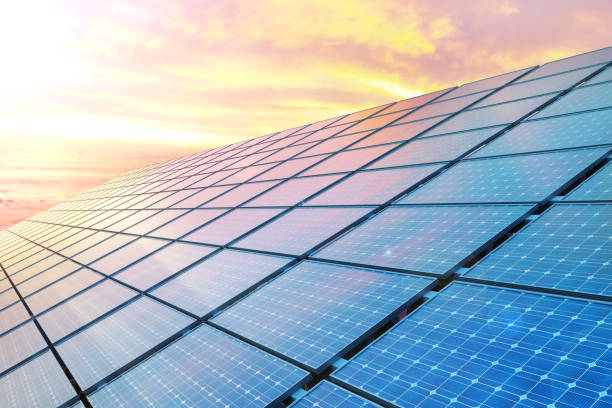Understanding Solar Panels: What They Are, How They Work, and Their Benefits
Solar panels have become a popular renewable energy solution for both residential and commercial properties. They offer a sustainable way to generate electricity, reduce energy bills, and decrease carbon footprints. This article delves into what solar panels are, how they work, their uses, the benefits they bring to homes, and the pros and cons associated with their installation.
What Are Solar Panels?
Solar panels, also known as photovoltaic (PV) panels, are devices that convert sunlight into electricity. They are composed of many solar cells made from silicon, which is a semiconductor material. When sunlight hits these cells, it creates an electric field that generates direct current (DC) electricity. Solar panels are typically installed on rooftops or open areas with direct sunlight exposure.
How Are Solar Panels Used?
Solar panels have a wide range of applications, including:
- Residential Use:
- Powering homes and reducing dependence on grid electricity.
- Heating water through solar water heating systems.
- Commercial Use:
- Providing electricity to businesses, reducing operational costs.
- Supporting off-grid operations in remote locations.
- Industrial Use:
- Supplying power to large-scale operations and manufacturing plants.
- Supporting renewable energy goals and reducing industrial carbon footprints.
- Public Sector:
- Powering public buildings, schools, and hospitals.
- Street lighting and traffic signals.
How Do Solar Panels Work?
Solar panels operate based on the photovoltaic effect, which involves the following steps:
- Light Absorption:
- When sunlight strikes the solar cells, it energizes electrons in the silicon, causing them to move.
- Electric Current Generation:
- The movement of these electrons creates a flow of electric current. Metal contacts on the top and bottom of the solar cells collect this current.
- Conversion to Usable Power:
- The direct current (DC) produced by the solar cells is converted into alternating current (AC) by an inverter, which is the form of electricity used in homes and businesses.
- Distribution:
- The AC electricity is then distributed throughout the property to power appliances, lighting, and other electrical systems.
Benefits of Solar Panels for Your Home:
- Reduced Energy Bills:
- By generating your own electricity, you can significantly reduce or even eliminate your energy bills. Excess electricity can often be sold back to the grid, providing additional savings.
- Environmental Impact:
- Solar energy is a clean, renewable source of power that reduces greenhouse gas emissions and dependence on fossil fuels, contributing to a healthier environment.
- Energy Independence:
- Homeowners gain greater control over their energy supply, reducing vulnerability to power outages and price fluctuations in the energy market.
- Increased Property Value:
- Homes equipped with solar panels often have higher property values and are more attractive to potential buyers due to the long-term energy savings they offer.
- Incentives and Rebates:
- Many governments offer incentives, tax credits, and rebates for installing solar panels, making the initial investment more affordable.
Pros and Cons of Solar Panels
Pros:
- Renewable Energy Source:
- Solar power is abundant and renewable, reducing reliance on finite resources like coal and natural gas.
- Low Operating Costs:
- Once installed, solar panels require minimal maintenance and have low operating costs compared to traditional energy sources.
- Long Lifespan:
- Solar panels are durable and typically have a lifespan of 25-30 years, providing long-term energy solutions.
- Scalability:
- Solar panel systems can be scaled to meet different energy needs, from small residential setups to large commercial arrays.
- Silent Operation:
- Solar panels generate electricity silently, making them ideal for residential areas where noise pollution is a concern.
Cons:
- High Initial Cost:
- The upfront cost of purchasing and installing solar panels can be high, though this is often offset by incentives and long-term savings.
- Weather Dependent:
- Solar panels’ efficiency depends on sunlight, meaning they produce less electricity on cloudy or rainy days and none at night.
- Space Requirements:
- Adequate space is needed for installation, which can be a limitation for properties with small rooftops or limited open areas.
- Energy Storage Costs:
- To store excess energy for use during non-sunny periods, additional investment in battery storage systems is required.
- Aesthetic Concerns:
- Some homeowners may find the appearance of solar panels unattractive or not in line with the aesthetic of their property.
Solar panels offer a viable and sustainable solution for generating electricity, providing numerous benefits to homeowners and businesses alike. They reduce energy costs, decrease environmental impact, and enhance energy independence. While there are some drawbacks, such as high initial costs and weather dependency, the long-term advantages often outweigh these concerns. As technology advances and costs decrease, solar panels are becoming an increasingly accessible and practical option for a growing number of people.
